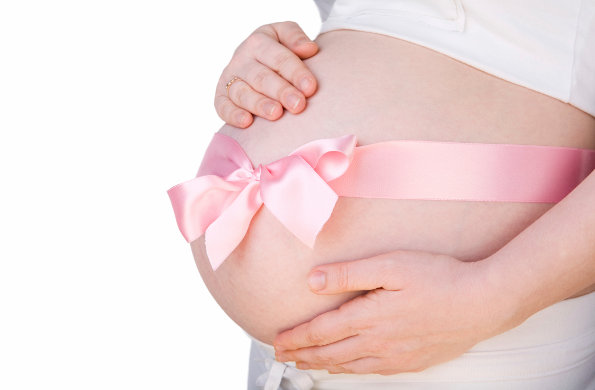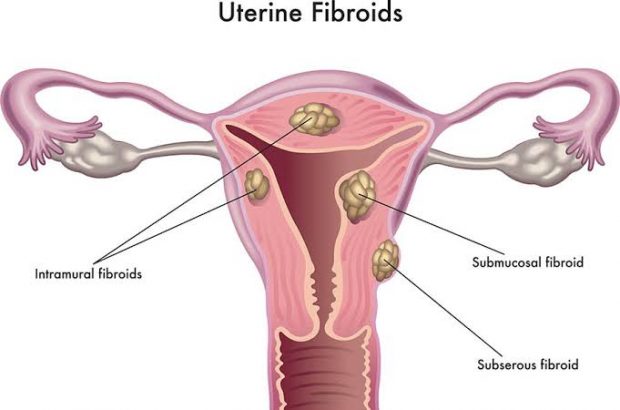If you are diagnosed with fibroids while you are pregnant, you might be worried about how they interfere with your pregnancy. Fibroids are tumors, that are benign and start to grow in the uterus or on it, or in the womb. Therefore, they are possible to affect your pregnancy or your chances of fertility. Uterine fibroids are common and can occur in many women who are over the age of 50 but also in a lot of women aged between 25 and 44 years old. Uterine fibroids are most common in women who are found in their childbearing years.

How Can Uterine Fibroids Affect Pregnancy?
In many cases, women who suffer from uterine fibroids won’t experience any changes in their pregnancy. However, in some cases, fibroids can lead to complications during pregnancy. The most common complication that occurs is an increase in pain during pregnancy. Often, women don’t experience any effects at all. Some complications may occur, which include a fetal growth restriction, as the fibroids can prevent the fetus from fully developing, the way it should. There are also cases, in which fibroids can lead to placental abruption, as the fibroids block the placenta and make it break away from the uterine wall. Placental abruption can lead to loss of levels of oxygen and important nutrients reaching the fetus. Women who experience pain due to the presence of fibroids might also go into labor prematurely, as pain due to fibroids might lead to contractions. Statistics also show that women who have fibroids are at increased risk of needing a cesarean delivery. Also, the baby might be in the breech position during pregnancy. In some cases, women who have fibroids are at an increased risk of suffering from a miscarriage.
Can Pregnancy Affect Fibroids?
In some cases, a uterine fibroid will start to grow more during pregnancy. This is believed to be influenced by the increased levels of estrogen. Nonetheless, scientists have found out that there are also cases, in which fibroids shrink during pregnancy.
How can Fibroids Affect Fertility?
Women who suffer from fibroids can get pregnant the natural way and might not even need treatment.
However, there are cases where fibroids can interfere with fertility. One of the ways it does so is by growing into the uterine cavity. This can increase the chances of being infertile or can lead to pregnancy loss. If you notice that you have difficulties with conceiving, especially when you have fibroids, you must consult a medical professional. You must inform yourself about the size of the fibroids that you have, as well as their position. Your doctor can inform you about whether this can lead to complications with fertility.
How are Fibroids Treated During Pregnancy?
Women who are pregnant are also limited in their treatment options, as there is an increased risk to the fetus. Your medical professional might prescribe you to rest, stay hydrated and get prescribed with mild pain relievers.
When needed, a myomectomy can be done in women who are in the second half of their pregnancy. It is a procedure that removes the fibroids but keeps the uterus intact. If the fibroids are found in the uterine cavity, then such surgery isn’t done, as this presents a greater risk to the fetus.

Can Fibroids be Treated During Pregnancy?
When you treat urine fibroids before you get pregnant, you can improve your chances of conceiving. There are different kinds of treatment for fibroids, which include hormonal birth control pills, myomectomy, and intrauterine device. Hormone birth control pills won’t allow you to become pregnant but can be used before trying to conceive, as this can help with painful cramps and heavy bleeding, which is caused by fibroids. A myomectomy is a surgical procedure which is done to remove fibroids. If you get a myomectomy, you will need to wait for three months before you attempt to conceive. An intrauterine device works similarly to a birth control pill as it can help you to eliminate the uncomfortable symptoms of fibroids.
In some cases, your medical professional might prescribe you with medication, such as Gonadotropin-releasing hormone (Gn-RH) agonists. This mediation can block the production of the hormones, which have the function of leading to menstruation but can also help the fibroids to shrink. Myolysis is another treatment possibility for fibroid, which with the use of a laser or a radio frequency energy beam, shrinks the blood vessels that have the function of feeding the fibroids.
All of these treatment options come with their risks, which is why it is important that you consult with your medical professional and chose with them which treatment type works best for you.
What are The Symptoms of Fibroids?
As mentioned previously, women who have fibroids, tend to suffer from heavy bleeding and painful periods. There are also cases, in which women bleed in-between periods. In some cases, heavy bleeding can lead to anemia. Some women also experience very long periods or might have chronic pressure in their lower abdomen. Some other symptoms include constipation, frequent urination, low back pain, infertility or preterm labor.
A fibroid will be detected by your doctor during a pelvic exam. Typically, the doctor will then suspect a growth and order further tests, such as an ultrasound.
Fibroids cannot be prevented, but by leading a healthy lifestyle, your risk of suffering from fibroids is lower. This means that you need to make sure that you maintain a healthy weight and exercise regularly. As uterine fibroids can affect fertility, you must speak to your doctor if you want to start a family. Depending on the size and location of the fibroids, your uterine fibroid specialist might advise you with a treatment option. In cases where the fibroids are of small size and not in a location where they might interfere with fertility, you might not need treatment at all. In such cases, it is very possible that women don’t experience any uncomfortable symptoms at all and it doesn’t interfere with their period blood flow either.
Read More:
Dad’s role in the delivery room
How to cope with the stress of parenting

